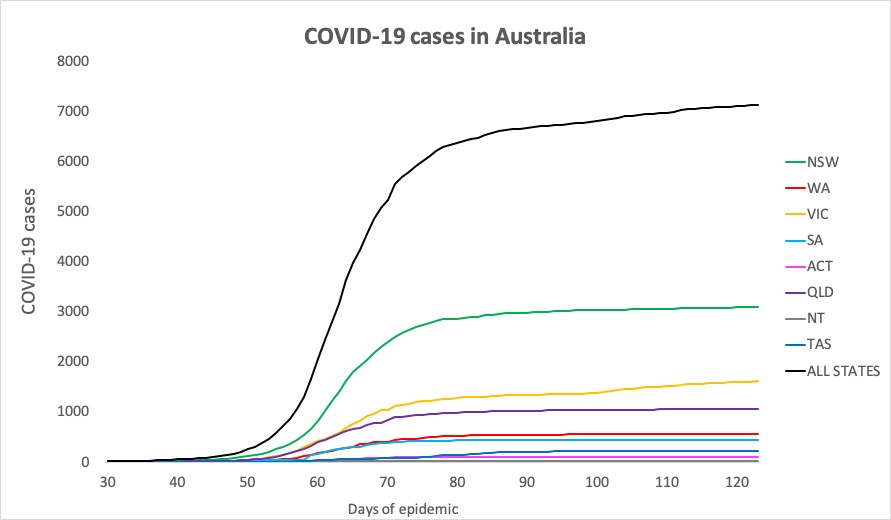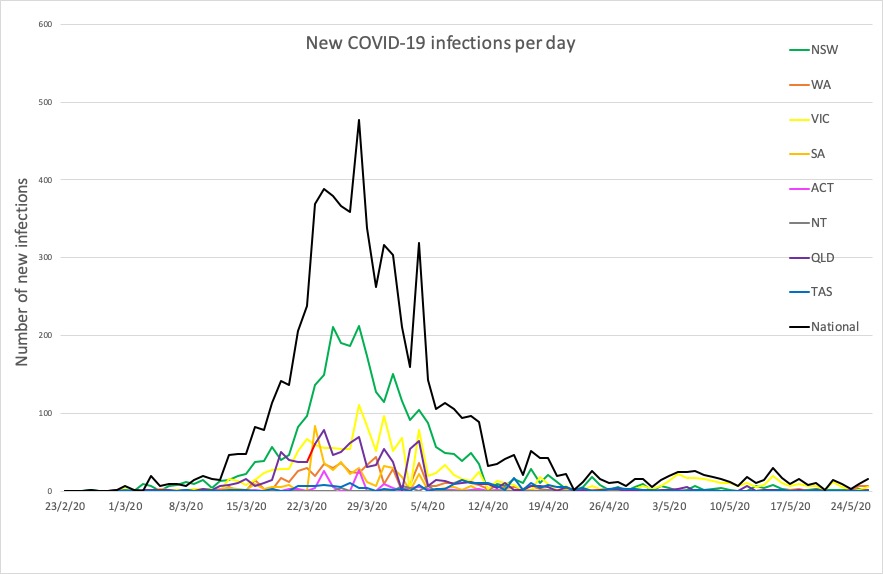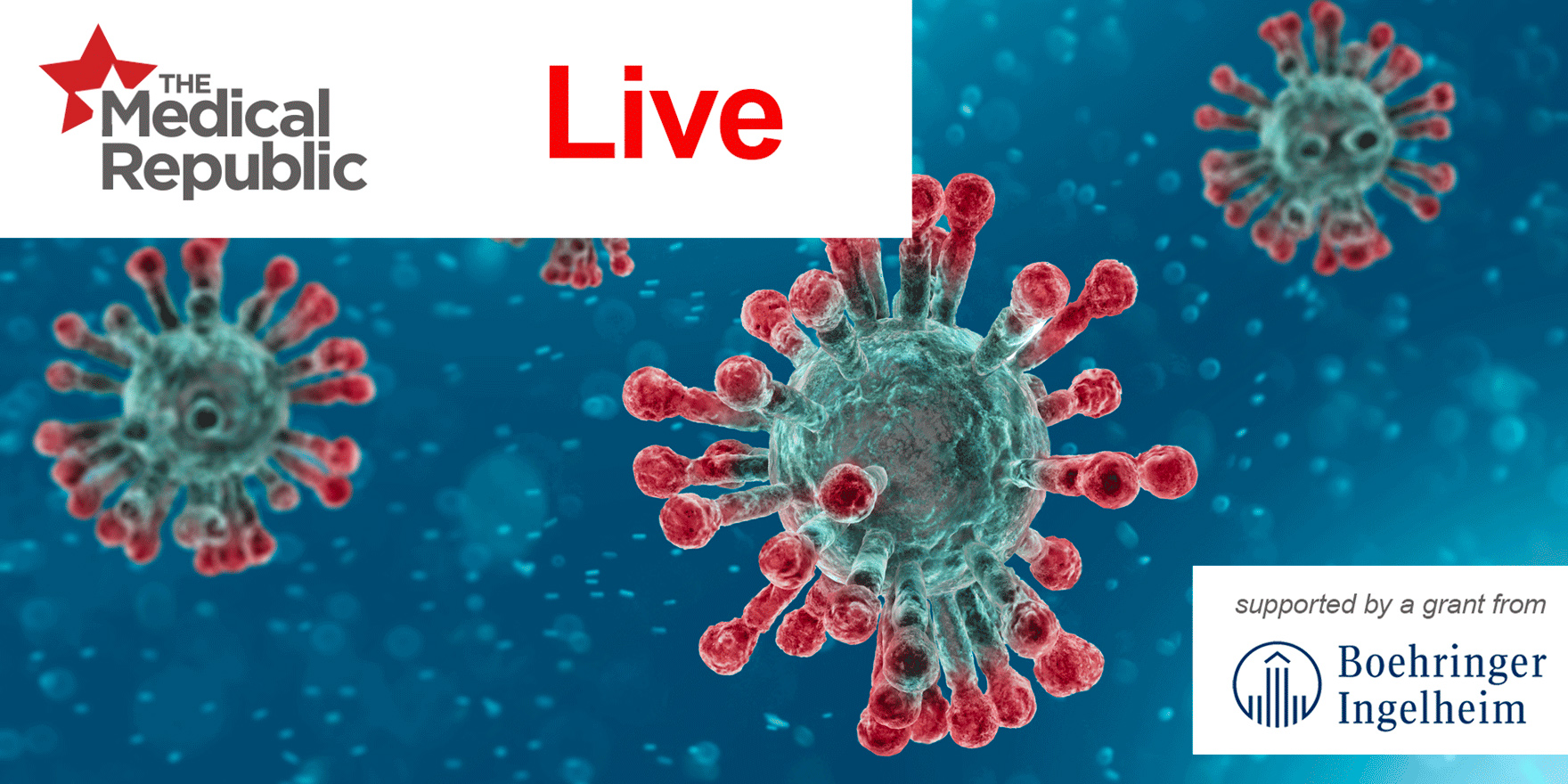Confused about what restrictions are in place in your state or territory? The government’s HealthDirect website now features a ‘Restriction Checker’ which allows you to search what the restrictions are on your desired activity and in your desired location.
Thanks for joining us on The Medical Republic‘s live COVID-19 blog.
And thank you to our sponsor and supporter for funding this project with an independent grant, Boehringer Ingelheim.
The latest
- Afternoon update: prevalence of COVID-19 in pregnant women, and what are the restrictions in my state?
- Morning update: Australia’s HCQ trial, transmission during presymptomatic COVID-19 infection, new guidance from NACCHO
- Today’s updated COVID-19 infection figures for Australia
- Confused about what restrictions are in place in your state or territory? The government’s HealthDirect website now features a ‘Restriction Checker’ which allows you to search what the restrictions are on your desired activity and in your desired location.
- Another study has added more information to the puzzle of just how prevalence COVID-19 is in the general population. Screening of 770 women presenting for childbirth at three US hospitals has found 30 – 3.9% – tested positive for SARS-Cov-2, and an additional twelve women had already been diagnosed with COVID-19, according to a research letter in JAMA.
Nearly three-quarters of the patients who tested positive were asymptomatic at the time of testing. Among the 14 women who did have COVID-19-like symptoms at the time of testing, eight (57%) were found to have the infection.
- TMR’s Penny Durham writes: With hydroxychloroquine going from hero to zero in a matter of weeks, the ASCOT study (AustralaSian COVID-19 Trial), a randomised controlled trial on HCQ and lopinavir/ritonavir, is waiting to hear from its data safety monitoring board before deciding whether to suspend enrolment on safety grounds.
This comes after a widely reported Lancet paper that looked at the outcomes for almost 100,000 COVID-19 patients and found worse survival rates and increased cardiac arrhythmias in those on HCQ or chloroquine, and the WHO’s suspension of its own HCQ trial.
Principal investigator Joshua Davis, conjoint professor at Newcastle University, said his personal opinion was that the Lancet paper shouldn’t change anything.
“It’s only observational data and it’s very confounded because the patients who got [those drugs] were systematically very different – they were sicker and had more comorbidities,” he told TMR.
“And while the WHO study has suspended recruitment pending anlysis, the UK equivalent has done its analysis – their DSMB looked at data from 10,000 patients and found no concerning safety signal.”
An official response will come from the Doherty Institute, which is sponsoring the trial, within a few days.
As we reported a few weeks ago, ASCOT is aiming to recruit 2000 patients at 700 hospitals in Australia and New Zealand. How’s that going?
“Good from a public health point of view, terrible from a study point of view – we’ve got zero patients.”
They’ve extended their recruitment timeline out to two years and included several Indian sites. “Basically until there’s a vaccine there’ll be little outbreaks – we’re playing the long game.” - The National Aboriginal Controlled Community Health Organisation has published updated guidance for healthcare professionals on prevention and management of COVID-19 for Aboriginal and Torres Strait Islander people, which includes advice on quarantine measures for healthcare workers travelling from higher prevalence to lower prevalence areas, and best practice for transporting patients without COVID-19.
- When it comes to reporting on COVID-19, Australians trust the Australian media more than people in the United States or United Kingdom trust their own national media, according to a report on Statista. Just over half of Australians trust what the media reports on COVID-19, compared to 42% of respondents in the US and just 31% of those in the UK.
- SARS-CoV-2 can be transmitted even during the presymptomatic stage of infection, according to a study published in Emerging Infectious Diseases. Analysis of contact tracing data for 359 confirmed COVID-19 cases in Guangzhou, nearly one in five of whom were asymptomatic at diagnosis but later developed symptoms, showed these presymptomatic individuals still infected others, especially those they were living with.
- Some interesting movement on the COVID-19 infections in Australia in the last 24 hours. Western Australia has reported six new cases, adding to the seven new cases from the previous day. The latest new infections were in crew aboard a livestock freighter that had travelled from Qatar, who have since been moved to a Perth hotel under quarantine.
South Australia has recorded its first new case in more than two weeks; a woman recently returned from the United Kingdom. Victoria’s five new cases consisted of three returned travellers, one community case unconnected to any known cases, and one in a nursing home. And New South Wales has recorded two student infections in two schools just a few kilometres apart.
Here are the latest figures to 9pm yesterday:
National – 7133, with 102 deaths and 6553 recovered
ACT – 107
NSW – 3092
NT – 29
QLD – 1057
SA – 440
TAS – 228
VIC – 1610
WA – 570


Disclaimer: The content on the Medical Republic COVID-19 blog is independently created by Medical Republic without input from Boehringer Ingelheim Pty Ltd. The views, information, or opinions expressed on the Medical Republic COVID-19 blog are Medical Republic’s own and do not necessarily represent those of Boehringer Ingelheim Pty Ltd. Boehringer Ingelheim Pty Ltd is not responsible for and does not verify the accuracy of any content on the Medical Republic COVID-19 blog.



